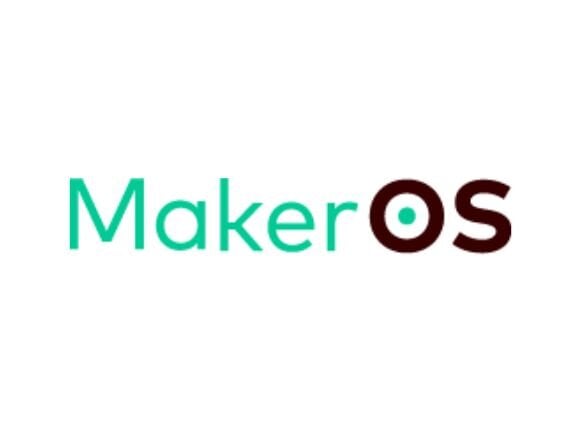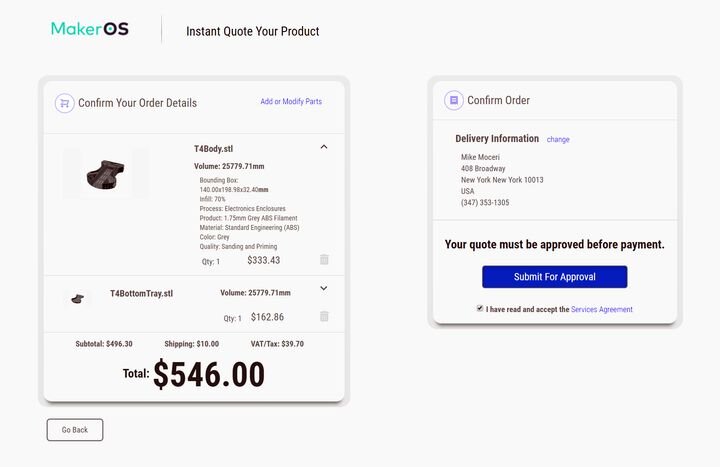
MakerOS announced today their new “Public AutoQuoter”, or “PAQ”.
If you’re not familiar with MakerOS, it’s a cloud-based service that provides an integrated online workflow and database for small to medium-sized makers and manufacturers. In many cases, small operations have horrendously rudimentary tracking systems where orders are lost and pricing is inaccurate. MakerOS solves that by implementing all the necessary functions in one integrated service, which they offer by subscription.
MakerOS PAQ
![New public auto-quoting feature [Source: MakerOS]](https://fabbaloo.com/wp-content/uploads/2020/05/image-asset_img_5eb050979360b.jpg)
Their new “PAQ” does what you might think: it accepts a request for a job, which often involves 3D printing, and attempts to develop an instantaneous quote for the work. This is presented to the client who can then accept or reject the offer. If accepted, the work is automatically injected into MakerOS’ workflow system for subsequent handling.
In this case “integration” means a lot more than just shuffling the order forward. Instead, MakerOS has connected the order with inventory, their online 3D object viewer and even their client communication hub, a system that records interactions between client and provider.
![New public auto-quoting feature [Source: MakerOS]](https://fabbaloo.com/wp-content/uploads/2020/05/image-asset_img_5eb05097cef33.jpg)
While this feature isn’t for everyone — it’s really a service for those providing manufacturing capabilities to clients — it is quite sophisticated. The order system allows the integration of a series of complex rules to account for all kinds of variability between providers. MakerOS says their system directly supports all major 3D printing processes, including SLS, FDM, SLA, MJF and others.
MakerOS Features
![New public auto-quoting feature [Source: MakerOS]](https://fabbaloo.com/wp-content/uploads/2020/05/image-asset_img_5eb0509828e50.jpg)
One of the very interesting features of the PAQ is that it can be customized to a very high degree. For example, most quoters would simply present a list of machine options and hope the requestor knows the difference. Sometimes they don’t and the provider has to intervene and set the customer on the correct path.
![New public auto-quoting feature [Source: MakerOS]](https://fabbaloo.com/wp-content/uploads/2020/05/image-asset_img_5eb050986ec3a.jpg)
Meanwhile, MakerOS allows the provider to set up “friendly” configuration options so that the requestor might see options such as “Electronics Cases”, “Outdoor Usage”, “Prototype”, or “End Use Part”, instead of the usual cryptic list of 3D printing processes. This enables the client to make a better selection right off the bat, and reduces handling time, too.
The PAQ includes a hidden feature that would be of great benefit to providers: an “Abandoned Quote Recovery” tool. This allows the recording of information for quotes where the user never quite hit the “submit” button. Abandoned online carts are a huge source of revenue for some operations, and it’s likely true here in manufacturing as well.
Finally, the PAQ includes a new feature that in retrospect should be obvious: the ability to submit a “blank” request where the requestor doesn’t know what they need. The requestor can submit a PDF, for example, describing the needs without knowing what the optimum 3D printing process might be. Brilliant!
If you’re a small to medium-sized manufacturing provider that is seeking a more sophisticated management solution, you might consider looking at MakerOS.
Via MakerOS

